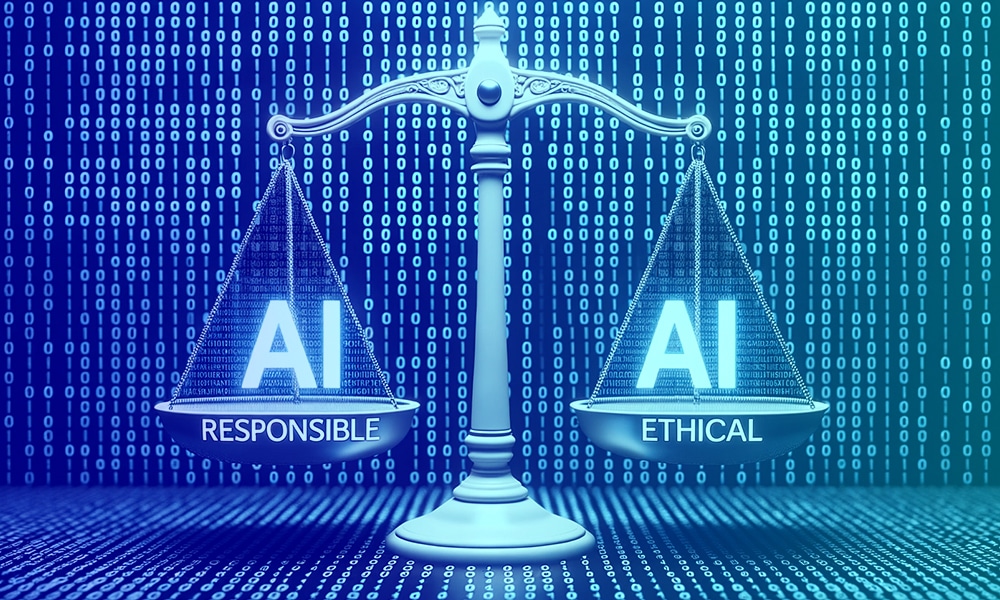
What is AI Ethics? Navigating Responsible AI – A Beginner’s Guide
In an increasingly interconnected world, Artificial Intelligence (AI) is no longer a futuristic concept but a tangible force shaping our daily lives. From personalized recommendations and smart assistants to medical diagnoses and autonomous vehicles, AI’s presence is pervasive. As AI systems become more sophisticated and impactful, a critical question emerges: How do we ensure these powerful technologies are developed and used responsibly, fairly, and for the good of humanity? This is where the crucial field of AI Ethics comes into play.
This comprehensive guide will demystify AI Ethics, explain its core principles, highlight its importance, and offer insights into how we can collectively navigate the path toward responsible AI.
Understanding the Core: What Exactly is AI Ethics?
At its heart, AI Ethics is a subfield of applied ethics that focuses on the moral principles and values that should guide the design, development, deployment, and use of Artificial Intelligence. It’s not just about what AI can do, but what it should do, and what the consequences of its actions might be.
Think of it this way: AI systems are built by humans, trained on human-generated data, and intended to serve human purposes. Therefore, they inevitably reflect human biases, values, and intentions – both good and bad. AI Ethics provides a framework to proactively address potential harms, ensure fairness, and uphold human values in an age of intelligent machines.
In essence, AI Ethics asks:
- How can we prevent AI from discriminating?
- How do we ensure AI systems are transparent and explainable?
- Who is accountable when an AI makes a mistake or causes harm?
- How do we protect individual privacy in an AI-driven world?
- How can AI truly benefit all of society, not just a select few?
Why is AI Ethics So Crucial Right Now?
The urgency of AI Ethics stems from several key factors:
- Pervasive Impact: AI is no longer confined to labs; it’s in our homes, hospitals, financial systems, and defense strategies. Its decisions, even seemingly small ones, can have profound real-world consequences.
- Autonomy and Complexity: As AI systems become more autonomous and complex, understanding their internal workings ("black box" problem) and predicting all their outcomes becomes challenging.
- Potential for Harm: Without ethical oversight, AI can amplify existing societal biases, enable surveillance, facilitate misinformation, lead to job displacement, and even be misused in warfare.
- Building Trust: For AI to be widely accepted and beneficial, people need to trust it. Ethical AI practices foster this trust by demonstrating a commitment to fairness, safety, and human values.
- Societal Transformation: AI has the potential to fundamentally transform industries, economies, and societies. Ethical considerations ensure this transformation is positive and equitable.
The Pillars of Responsible AI: Key Ethical Principles
While different organizations and countries may articulate them slightly differently, several core principles consistently form the bedrock of AI Ethics. Understanding these principles is fundamental to navigating responsible AI.
1. Fairness & Non-Discrimination
- What it means: AI systems should treat all individuals and groups equitably, without perpetuating or amplifying unfair biases that exist in society or in the data they are trained on. They should not discriminate based on race, gender, age, religion, socio-economic status, or any other protected characteristic.
- Why it matters: Biased AI can lead to unequal access to opportunities (e.g., loans, jobs), unfair legal judgments, or discriminatory treatment in healthcare.
- Example of concern: An AI system used for hiring that disproportionately favors male candidates because it was trained on historical data where men were more prevalent in certain roles.
2. Transparency & Explainability (XAI)
- What it means: AI systems, particularly those making high-stakes decisions, should be understandable. Users and affected individuals should be able to comprehend how an AI reached a particular conclusion or recommendation. This is often referred to as Explainable AI (XAI).
- Why it matters: If an AI denies a loan or rejects a job application, the affected person deserves to know why. Transparency builds trust, allows for auditing, and helps identify errors or biases.
- Example of concern: A complex AI medical diagnostic tool that gives a prognosis but cannot explain the reasoning behind its recommendation, making it difficult for doctors to trust or verify.
3. Accountability & Responsibility
- What it means: There must be clear lines of responsibility for the design, deployment, and outcomes of AI systems. When an AI makes a mistake or causes harm, it should be clear who is answerable – whether it’s the developer, the deployer, the operator, or a combination.
- Why it matters: Without accountability, there’s no incentive to fix problems, learn from mistakes, or prevent future harm. It’s crucial for legal recourse and public trust.
- Example of concern: An autonomous vehicle causes an accident, and it’s unclear whether the fault lies with the car manufacturer, the software developer, or the vehicle owner.
4. Privacy & Data Security
- What it means: AI systems often rely on vast amounts of data, much of which can be personal. Ethical AI requires robust measures to protect individual privacy, ensure data security, and use data only for its intended purpose with consent.
- Why it matters: Misuse or breaches of personal data can lead to identity theft, surveillance, discrimination, and a profound loss of trust.
- Example of concern: An AI-powered facial recognition system that collects and stores biometric data without explicit consent, potentially leading to mass surveillance.
5. Human Control & Oversight
- What it means: AI systems should be designed to augment human capabilities, not replace human judgment entirely, especially in critical domains. Humans should retain the ability to intervene, override, and control AI decisions.
- Why it matters: This principle prevents AI from operating completely autonomously in high-risk scenarios and ensures that human values and ethical considerations remain paramount.
- Example of concern: An AI-driven military drone making lethal decisions without human review or intervention.
6. Beneficence & Safety (Non-Maleficence)
- What it means: AI should be developed and used to promote well-being, benefit humanity, and contribute positively to society. It should also be designed to be safe, robust, and reliable, minimizing any potential for harm.
- Why it matters: This principle ensures AI serves a constructive purpose and avoids unintended negative consequences or malicious use.
- Example of concern: An AI-optimized algorithm that maximizes engagement on a social media platform but inadvertently promotes harmful content or deepens societal divisions.
7. Sustainability & Environmental Impact
- What it means: Acknowledging that training and running large AI models consume significant energy and resources. Ethical AI also considers its environmental footprint and seeks to develop more energy-efficient and sustainable AI solutions.
- Why it matters: As AI scales, its environmental impact could become substantial, contributing to climate change and resource depletion. Responsible AI considers the planet.
- Example of concern: Developing increasingly larger AI models that require massive data centers with high energy consumption, contributing to carbon emissions.
Navigating Responsible AI: Practical Steps and Stakeholders
Building and deploying ethical AI is a shared responsibility, involving various stakeholders across society.
For AI Developers & Organizations:
- Adopt Ethical Guidelines: Establish clear internal principles and policies for AI development.
- Implement "Ethics by Design": Integrate ethical considerations from the very beginning of the AI development lifecycle, not as an afterthought.
- Diversify Teams: Build AI teams that are diverse in background, gender, ethnicity, and thought, as this helps identify and mitigate biases.
- Data Governance: Implement strict protocols for data collection, storage, and usage, ensuring privacy and fairness.
- Bias Auditing: Regularly test AI models for bias and develop strategies to correct it.
- Transparency Mechanisms: Develop tools and methods to make AI decisions more understandable and explainable.
- Ethical Training: Provide continuous training for engineers, product managers, and leadership on AI ethics.
- Impact Assessments: Conduct thorough assessments of potential societal, economic, and ethical impacts before deploying AI systems.
For Policymakers & Governments:
- Develop Regulations & Standards: Create clear, enforceable laws and regulatory frameworks that address AI ethics, similar to GDPR for data privacy.
- Foster International Cooperation: AI is global; ethical guidelines and regulations need international alignment to be effective.
- Invest in Research: Fund research into AI ethics, explainability, bias detection, and responsible AI governance.
- Promote Public Dialogue: Facilitate informed public discussions about the implications of AI to build consensus and address concerns.
For Educators & Researchers:
- Integrate AI Ethics into Curricula: Teach AI ethics as a fundamental component of computer science, engineering, and data science programs.
- Conduct Interdisciplinary Research: Foster collaboration between AI experts, ethicists, social scientists, and legal scholars.
- Develop Best Practices: Contribute to the creation of open-source tools, methodologies, and benchmarks for ethical AI development.
For Individuals & Society:
- Stay Informed: Understand how AI impacts your life and learn about the ethical challenges it presents.
- Demand Transparency: Ask questions about how AI systems make decisions that affect you.
- Provide Feedback: Report instances of biased or harmful AI when you encounter them.
- Participate in Discussions: Engage in public conversations about AI’s future and advocate for responsible development.
The Future of AI Ethics: An Ongoing Journey
AI Ethics is not a static field; it’s dynamic and constantly evolving alongside technological advancements. As AI capabilities expand, new ethical dilemmas will undoubtedly emerge, requiring continuous dialogue, adaptation, and collaboration across disciplines and borders.
The goal is not to halt AI progress but to ensure that this powerful technology serves humanity’s best interests. By embedding ethical considerations at every stage of AI’s lifecycle, we can unlock its immense potential to solve complex problems, improve lives, and build a more just and equitable future for everyone.
Frequently Asked Questions (FAQs) About AI Ethics
Q1: Is AI Ethics a legal requirement?
A1: Currently, AI Ethics is a rapidly evolving field with a mix of voluntary guidelines, industry best practices, and emerging regulations. Some specific aspects, like data privacy (e.g., GDPR), are legally binding and directly impact AI development. Governments worldwide are actively working on comprehensive AI regulations, so more legal requirements are expected in the near future.
Q2: Can AI truly be "ethical" if it’s just code?
A2: AI itself doesn’t possess moral agency or consciousness in the human sense. When we talk about "ethical AI," we mean AI systems that are designed, developed, and deployed in a way that aligns with human ethical principles and values. It’s about the ethical choices made by the humans behind the AI, and the systems they build to reflect those choices.
Q3: Who is ultimately responsible for an AI’s ethical behavior?
A3: Responsibility is typically distributed across the various stakeholders involved in the AI’s lifecycle. This can include the data providers, the AI developers, the organizations that deploy and operate the AI, and even the users. Establishing clear lines of accountability is a core challenge in AI ethics.
Q4: How can I learn more about AI Ethics?
A4: There are many resources available! Look for courses from universities and online platforms (Coursera, edX), read books and articles by leading ethicists and AI researchers, follow organizations dedicated to responsible AI (e.g., Partnership on AI, AI Now Institute), and engage in public discussions.
Q5: Will AI take away all our jobs? Is that an AI ethics issue?
A5: The impact of AI on jobs is a significant societal concern and falls under the broader umbrella of AI ethics. While AI will automate some tasks and displace certain jobs, it’s also expected to create new jobs and roles. The ethical challenge is ensuring a just transition for workers, providing retraining opportunities, and addressing potential economic inequality resulting from AI adoption.
Ready to explore more about responsible AI? Dive deeper into specific ethical challenges, emerging regulations, and the cutting-edge solutions being developed to ensure AI serves humanity’s best interests. Your understanding is the first step towards a more responsible AI future!



Post Comment